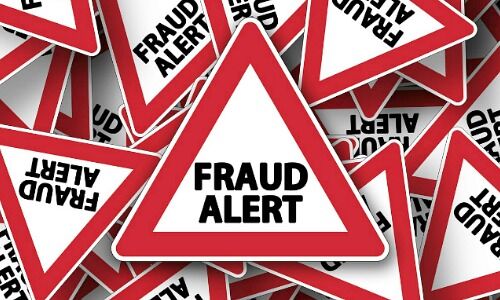The abuse of emergency corona money may be more widespread than feared, experts told finews.com. Switzerland is taking a central role –pressuring its banks.
Nearly 15 billion Swiss francs ($15.5 billion: that's the sum of emergency credit for small business guaranteed in large part by the Swiss government. The unbureaucratic, government-backed scheme quickly attracted alleged fraudsters, like a business in Vaud which is suspected of misappropriating emergency funds to an account in Turkey, as well as legitimate debtors.
The government has sought to smooth ruffled feathers, saying it surprisingly few cases of outright fraud have emerged. Of more than 100,000 loans granted in the credit «bazooka,» just 109 show signs of irregularities, government agency SECO told «Neue Zuercher Zeitung» (behind paywall, in German) on Wednesday.
«About 10 Percent Diverted»
Forensic and white-collar crime experts recounted finews.com they don't share the government's optimism: they fear far wider abuse of the loan scheme than officially registered. They also assume that loan money from similar shore-ups in other countries has made its way to Switzerland, the world's largest offshore money haven.
«For years, we've seen money being diverted from the type of major rescue programs that are commonplace since the financial crisis of 2008/09,» Veit Buetterlin of Alix Partners in Zurich said. «In our experience, the rule of thumb for money being diverted is about ten percent,» the consultant specialized in forensic financial investigations said.
Hair, The Mob, Extremists
Buetterlin helps Swiss banks, enlisted as foot soldiers in the government's $40 billion loan flood, to professionalize and adapt their compliance systems. The banks' safeguards are the first line of defense against shysters, but are frequently at odds with the government's declared intention to get money out the door to small businesses as quickly as possible.
The Alix consultant said banks have done «excellent work» in spotting potential frauds. «But a lot depends on banks seeking out the right patterns – and these patterns have also changed in the crisis,» Buetterlin said. He cites disparate examples of abuse: from hair salons finessing their income to large criminal organizations setting up sham companies to win emergency corona funds – even extremist groups have tapped the financing source. «Switzerland is also affected by this type of fraud,» Buetterlin said.
Suspicious Correspondent Accounts
In Switzerland's defense, banks have worked hand-in-glove with government financial and tax agencies to cross-reference company data on loan applications. Consulting firm PwC was mandated to filter out fraudulent attempts to draw more than one loan. Swiss banks face an additional layer of complexity on funds flooding in from foreign corona aid programs – many of which are finding their way to the world's largest offshore haven.
«As a globalized financial center, Switzerland is a preferred destination,» Buetterlin said. Banks with a wide international clientele are the primary targets – and the culprits aren't necessarily their clients, but can come in via correspondent banks, he noted.
Banks sign on to anti-money laundering rules laid out by the Financial Action Task Force. Paradoxically, government efforts to open the lending nozzle have hampered efforts to tamp down on this type of abuse. For example, German regulators urged banks to forgo the usual know-your-client risk checks in order to simply get money out the door faster, as German daily «Sueddeutsche Zeitung» (behind paywall, in German) reported last month.
Money Mules And Smurfs
- Page 1 of 2
- Next >>




































